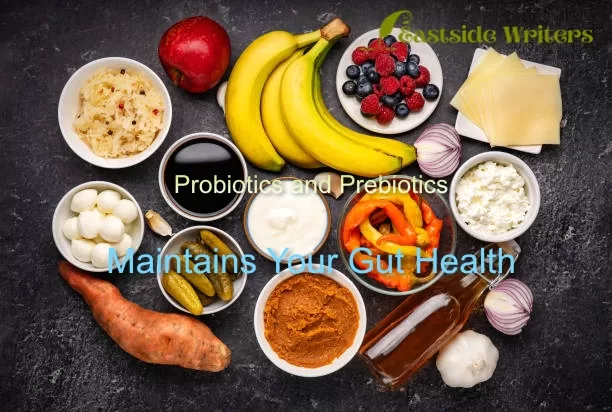Probiotics and prebiotics mark a historically significant advancement in the fight against aging. A victory in the long-running conflict between man and mortality We already knew that antioxidants are important for preventing degenerative diseases and slowing down the aging of cells. A recent study1 discovered that certain types of intestinal bacteria, in particular, have a significant influence on longevity.
Scientists examined the gut microbiota of a variety of individuals, including adults (aged 22–48), seniors (aged 6–75), centenarians (aged 99–104), and supercentenarians (105–109). The outcomes were astounding.
Studies indicate that as we get older, our good bacteria start to die off and are replaced by bad ones. We now know that the GI tract is full of billions of bacteria that not only help us absorb food but also help our bodies maintain homeostasis and overall health. The microbiome, also known as the gut microbiome or the composition of bacteria and other microorganisms in the stomach and intestines, may hold the secret, according to researchers.

The study of the microbiome is still in its early stages. But research has previously shown that particular settings, diets, and habits can have a positive or negative impact on gut health. Here are some reasons why it counts and the steps you can take to raise your own.
Why is intestinal health crucial?
Despite the fact that everyone’s microbiome is unique, there are some general guidelines to follow when determining what is and is not healthy. There are many different types of organisms in healthy people. Some microbes fight inflammation, while others encourage it. These two keep one another in check when the gut functions normally. However, if that delicate equilibrium is upset, inflammatory bacteria may gain control and release chemicals that can travel through the gut lining and into the bloodstream, causing inflammation to spread to other parts of the body.
Various gut bacteria strains can cause further conditions as well. Studies on both humans and animals have connected many bacteria with chronic diseases like heart disease multiple sclerosis, , diabetes, and some malignancies, as well as with reduced immune function and an increased risk of allergies and asthma.
Even neurological diseases like schizophrenia and dementia, as well as feelings of anxiety and despair, have been related to poor gut health. People who are thin and people who are overweight have different kinds of bacteria in their guts, which may contribute to obesity.
Both probiotics and prebiotics help the body make and keep a healthy colony of bacteria and other microorganisms that feed the gut and make digestion easier. By giving microorganisms food and making the environment good for their growth, these food ingredients help good bacteria grow.
Understanding Prebiotic And Probiotic
Each multicellular organism is covered by many microorganisms, including both plants. Microorganisms, often known as “microbes,” are small (microscopic) life forms such as bacteria, viruses, yeast, parasites, and others. The organisms that live on your skin, in your physiological fluids, and all along your digestive tract are many and diverse.
From the moment we are born, we are exposed to many bacteria. On and inside of you, there are more single-celled organisms than there are cells in your own body. A person’s unique collection of bacteria is known as their “microbiota.” The genetic information that can be gathered from all of these bacteria in a certain place is called the “microbiome.” The epidermis and the digestive system are two parts of the body that have different microbiomes and gut bacteria.
Some estimates say that there are between 500 and 1,000 different species of gut bacteria in the stomach’s 100 trillion bacteria. Although there are many different species and a large number of them, there is a delicate balance.
hese gut bacteria and we have co-evolved; we give them a place to live and food, and they improve our overall health. They affect the immune system, make certain vitamins, nutrients, and important fatty acids, stop harmful microorganisms from growing and improve human health in ways scientists are still trying to figure out.
In essence, prebiotics is indigestible fibers (carbohydrates). They are helpful because they feed the good bacteria in the gut that help keep the digestive system healthy. In addition to making it easier for the body to absorb calcium, prebiotics help treats irritable bowel syndrome and lower the risk of allergies. Prebiotics, which are abundant in Welly’s Gummy PopsTM, help to strengthen your digestive system.

Probiotics are the “good” bacteria, or living cultures, that are similar to those that are naturally present in your stomach. To balance gut flora, these active cultures can modify or replenish intestinal microorganisms. This useful element might improve general health and immunity. Probiotics have been used, for example, to treat the symptoms of irritable bowel syndrome.
How Does Prebiotics Work?
Prebiotics don’t actually contain any microbes or gut bacteria. They provide the food that bacteria need to flourish. All prebiotics are categorized as dietary fiber. Chicory root, bananas, and asparagus all have the prebiotic fiber inulin, which can be eaten to help keep your gut healthy. Onions, artichokes, and legumes make excellent prebiotic substitutes.
A “synbiotic” is a dietary supplement that has both prebiotics and probiotics in it. Synbiotic foods that are good for the intestines include cheese and some types of yogurt. Prebiotics can also be found as food additives or as dietary supplements in the form of pills. There are numerous liquid and powdered variations.
Prebiotics are naturally occurring, indigestible food components that have been demonstrated to promote the growth of healthy gut bacteria in your stomach and improve gut health. Simply enough, they encourage beneficial microbes. Prebiotics may enhance calcium absorption while enhancing intestinal health.
Prebiotics include fructooligosaccharides like inulin and galactooligosaccharides. Instead of worrying about these hard sentences, eat more whole grains, fruits, and vegetables throughout the day to get the most prebiotics possible. Bananas, onions, asparagus, artichokes, and whole-grain foods are a few examples.
How Do Probiotics Work?
When talking about probiotic microorganisms, people often talk about two networks of gut bacteria. Probiotic compositions are associated with the Lactobacillus and Bifidobacterium species. Many foods that go through a mild fermentation process naturally contain probiotics. Sauerkraut, kimchi, and yogurt are a few options.
Pickles also contain probiotics by nature. Probiotics can be purchased as a dietary supplement. They come in fluid or granular form. To maintain their vitality and potential for the multiplication of the gut bacteria they contain, probiotics often need to be kept in the refrigerator.
Probiotics are “good” bacteria that are already in your gut. These bacteria are also called “living cultures.” Such active cultures change or replace intestinal bacteria to maintain gut health. This functional component might enhance resilience, overall health, and gut health. Live cultures like bifidobacteria and lactobacilli are often found in curds and some cheeses that have gone through the fermentation process.
They might serve as probiotics. Some fermented foods that are good for your gut, like kimchi, sauerkraut, and cultured non-dairy yogurts, may also have live cultures. However, it’s possible that these variations haven’t been thoroughly studied to see if they offer any extra health benefits.
Prebiotic and probiotic benefits

Enhancing and maintaining Gut Health:
In a broader sense probiotics help with general digestion, micturition, assimilation, and staying away from diarrhea. Nausea, gas, and bloating can be reduced with a healthy and functional digestive system. Probiotics may help with irritable bowel syndrome, urinary tract infections, and inflammatory bowel disease, among other health problems.
Treatment and Prevention of Diarrhea:
A study suggests that probiotics may make diarrhea less severe and last less long. Other studies have shown that probiotics can reduce the likelihood of diarrhea brought on by antibiotic use. L. rhamnosus, L. casei, and the yeast S. boulardii were found to be much more effective therapies for the runs.
Immune System:
Probiotics help to enhance your immune system’s defenses against several diseases. By keeping a healthy mix of gut bacteria in your body, you are protected from damaging microorganisms like yeast, fungi, and viral overgrowths. The strains of Lactobacillus and Streptococcus protected cells from E. coli infections, according to a study on gut health. A different study found that women who consumed Lactobacillus crispatus reduced their risk of UTIs by roughly 50%.
Blood Pressure Control:
A study suggests that probiotics may help lower blood pressure. When taken daily for seven to eight weeks or longer, probiotics containing a variety of strains (those containing more than ten million) have proven to be the most beneficial.
Weight loss:
According to research, women on diet plans who ingested L. rhamnosus for three to four months shed 50% more weight than those who did not. A different study found that L. paracasei can actually stop fat from accumulating.
Prebiotics and probiotics: Both perform together
Prebiotics and probiotics work best together. The prebiotics act as the living probiotics’ breakfast, lunch, and dinner, which can improve gut health. Taking nutritional supplements that are good for your health, such as those that mix prebiotics and probiotics, can help you stay healthy. That could entail just stir-frying some asparagus with tempeh or topping yogurt with bananas. If you have digestive issues or a weak immune system, speak with a certified nutritionist for full advice on where to buy prebiotics and probiotics in accordance with your specific healthcare needs.
How to Begin Using Probiotics
Because there are so many probiotic foods and pills on the market, buying them can be hard to figure out. Customers need to be aware that not all of these foods contain live probiotic bacteria. Choose frozen versions of probiotic foods like pickles and sauerkraut because shelf-stable varieties have been pasteurized, which kills microorganisms.
Additionally, buyers may search for terms on labeling standards like “living and active cultures.” Since probiotic gut health foods may only provide helpful microbes for a short period of time after consumption, eating them frequently seems to be the most effective approach to sustaining the benefits.
Prebiotics are found in plant-based foods with a lot of fiber, and they need to be ingested frequently because they feed probiotic bacteria. Prebiotics are present in many foods that are good for the gut, some of which are listed below:
Chard, artichokes, collard greens, asparagus, spinach, broccoli, mushrooms, cabbage, onions, and sweet potatoes are a few examples of vegetables.
Fruits: Some examples are bananas, apples, berries, kiwis, pomegranates, guavas, and blueberries.
legumes: Such as lentils, peas, soybeans, and chickpeas.
Grains: brown rice, whole wheat, barley, maize, and oats
Nuts: Some seeds and nuts include almonds, flaxseed, peanuts, and walnuts.
It is best to eat a variety of meals from this collection because different probiotic organisms prefer different prebiotic foods for gut health. Key benefit number two is that eating a variety of these foods will add many important vitamins and minerals to the diet.
If you do not already include pre- and probiotic-meaning foods in your diet, it is best to begin slowly by adding small amounts of new foods. The microbiota quickly adjusts to new things, so adding too many at once could make your stomach feel bad.
If you think it will be hard for you to eat enough of these healthy foods for your gut, talk to your doctor to find out if you might need a supplement. Before you try a new supplement, you should talk to your doctor or a registered dietician. Supplements can vary a lot, and each person’s gut health and gut bacteria are different.

Some Common Questions
1. What purpose do probiotics fulfill?
Probiotics stop diarrhea and constipation, make you feel better, and reduce gas and bloating in your digestive tract.
2. Who Can Consume Good Gut and What Are the Consequences?
Good Gut is suggested for anyone with digestive issues who wants to improve their gut health. Before you drink the product, you should see your doctor if you are nursing, pregnant, diabetic, or taking any kind of medicine. Anyone under the age of 18 is not advised to use this product, according to us. Utilizing our vegan and natural goods has no adverse side effects.
3. What are helpful bacteria, and what are the benefits of having them?
Probiotics, which are sometimes called “good gut bacteria,” help with digestion, the absorption of nutrients, and the making of vitamins in the digestive tract.
4. Why are prebiotics beneficial for gut health?
Prebiotics aid in the growth of probiotics and improve digestion, metabolism, and mineral absorption. Consider them food for the beneficial intestinal bacteria.
5. What Sets Prebiotics Apart from Probiotics? Which is better, prebiotics or probiotics?
Probiotics support gut health by producing beneficial bacteria. Prebiotics, on the other hand, benefit strong microbes. Beyond their individual uses, probiotics and prebiotics have several benefits. Both prebiotics and probiotics are necessary for maintaining good gut health.
Disclaimer: This information is for educational purposes only, and no medical advice should be inferred from it. Before changing your diet or adding supplements, please talk to your doctor.
The author’s views are his or her own. The facts and opinions in the article have been taken from various articles and commentaries available in the online media and Eastside Writers does not take any responsibility or obligation for them.
Note: Contact our Writers at www.eastsidewriters.com for writing Blogs/Articles on any niche. We have experts in various domains from Technology to Finance and from Spirituality to Lifestyle and Entertainment.







Pingback: Two Proven techniques to get rid of stubborn belly fat - Eastside Writers
Pingback: Obtain Relief From Bothersome Constipation With Natural Treatments
Pingback: Learn the 12 proven methods To Reduce Obesity without any side effects - Eastside Writers
Pingback: Know The Rich Benefits Of Adding Dark Chocolate To Your Diet Routine
Pingback: 12 Tips To Trigger The Flow Of Happiness Hormones In Your Body - Eastside Writers
Pingback: Peeling Back the Truth: The Incredible Health Benefits of Eating Bananas - Eastside Writers
Pingback: The Power of Pomegranate -This Superfood Can Help You Lose Weight - Eastside Writers
Pingback: Beauty Unveiled: Harnessing the Skin-Sational Benefits of Curd - Eastside Writers
Pingback: Unlock the Power of Curd: 12 Incredible Tips to Glow Your Face with Homemade Packs - Eastside Writers